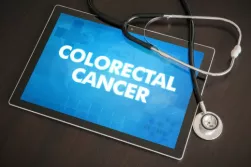CAMBRIDGE, MA and RAHWAY, NJ — Moderna, Inc. and Merck, known as MSD outside of the United States and Canada, announced the first presentation of results from a planned analysis from the Phase 2b randomized KEYNOTE-942/mRNA-4157-P201 study, a clinical trial evaluating mRNA-4157 (V940), an investigational individualized neoantigen therapy (INT), in combination with KEYTRUDA, Merck's anti-PD-1 therapy, in patients with resected high-risk melanoma (stage III/IV) following complete resection (n=157). With a median follow-up of approximately three years (34.9 months), adjuvant treatment with mRNA-4157 (V940) in combination with KEYTRUDA continued to demonstrate a clinically meaningful and durable improvement in recurrence-free survival (RFS), the primary endpoint of the study, reducing the risk of recurrence or death by 49% (HR [95% CI], 0.510 [0.288-0.906]; two-sided nominal p-value 0.019) compared with KEYTRUDA alone. mRNA-4157 (V940) in combination with KEYTRUDA also continued to demonstrate a meaningful improvement in distant metastasis-free survival (DMFS), a key secondary endpoint of the study, compared with KEYTRUDA alone, reducing the risk of developing distant metastasis or death by 62% (HR [95% CI], 0.384 [0.172-0.858], two-sided nominal p-value 0.015).
These data are being presented during a rapid oral abstract session at the 2024 American Society of Clinical Oncology (ASCO) Annual Meeting (abstract #LBA9512). With an additional year of planned follow-up, these data build on the earlier analysis of the primary and key secondary endpoints of the study, presented in 2023. The 2.5-year recurrence-free survival rate of mRNA-4157 (V940) in combination with KEYTRUDA was 74.8%, as compared to 55.6% for KEYTRUDA alone, with the benefit observed across exploratory subgroups.
"We are encouraged by the latest results from the KEYNOTE-942/mRNA-4157-P201 study. These data highlight the sustained benefit in RFS and DMFS of mRNA-4157 (V940) as adjuvant treatment in combination with KEYTRUDA in people with resected high-risk melanoma. Importantly, this benefit was observed across various patient exploratory subgroups, reflecting the potential of mRNA-4157 (V940) for a broad range of these patients," said Kyle Holen, M.D., Moderna's Senior Vice President and Head of Development, Therapeutics and Oncology. "These findings reinforce our commitment to advancing this innovative treatment in collaboration with Merck, and we are dedicated to harnessing mRNA technology to potentially transform cancer therapy and improve patient outcomes."
"The sustained improvements in recurrence-free survival and distant metastasis-free survival observed at approximately three years in the KEYNOTE-942/mRNA-4157-P201 study provide further support of the potential of mRNA-4157 (V940) in combination with KEYTRUDA to help patients with resected high-risk melanoma," said Dr. Marjorie Green, senior vice president and head of oncology, global clinical development, Merck Research Laboratories. "We look forward to building on our legacy of turning breakthrough science into medicines that may have a meaningful impact on patients' lives as we continue advancing our broad clinical development program evaluating this novel approach with Moderna."
Additional efficacy and subgroup data
Data from an exploratory subgroup analysis of the Phase 2b KEYNOTE-942/mRNA-4157-P201 study in patients with resected high-risk melanoma (stage III/IV) following complete resection showed that improvement in RFS was observed with mRNA-4157 (V940) in combination with KEYTRUDA compared to KEYTRUDA alone regardless of tumor mutational burden (TMB) or programmed death-ligand 1 (PD-L1) status.
The RFS benefit of mRNA-4157 (V940) in combination with KEYTRUDA compared to KEYTRUDA alone was maintained across both TMB high (HR [95% CI], 0.564 [0.253-1.258]), TMB non-high (0.571 [0.245-1.331]), PD-L1 positive (0.471 [0.226-0.979]), PD-L1 negative (0.147 [0.034-0.630]), and circulating tumor DNA (ctDNA) negative (0.207 [0.091-0.470]) subpopulations. ctDNA positive HR was not estimable due to the small sample size. There were no significant associations between individual human leukocyte antigen (HLA) alleles and RFS observed for mRNA-4157 (V940) in combination with KEYTRUDA.
The exploratory endpoint of overall survival (OS) favored mRNA-4157 (V940) in combination with KEYTRUDA compared to KEYTRUDA alone, with a 2.5-year OS rate of 96.0% vs. 90.2%, respectively (HR [95% CI], 0.425 [0.114-1.584]).
The safety profile with mRNA-4157 (V940) in combination with KEYTRUDA in KEYNOTE-942/mRNA-4157-P201 remains consistent with the primary analysis. The most common adverse events attributed to mRNA-4157 (V940) in combination with KEYTRUDA were fatigue (60.6%), injection site pain (56.7%), and chills (49.0%). The majority of the adverse events attributed to mRNA-4157 (V940) were Grade 1-2, with fatigue being the most common Grade 3 event and no Grade 4-5 events. Immune-related adverse events occurred in 37.5% of patients receiving the combination and 36% receiving KEYTRUDA alone.
Ongoing clinical development programs
Merck and Moderna have initiated Phase 3 randomized clinical trials evaluating mRNA-4157 (V940) in combination with KEYTRUDA as an adjuvant treatment in patients with resected high-risk (Stage IIB-IV) melanoma (INTerpath-001, NCT05933577) and non-small cell lung cancer (INTerpath-002, NCT06077760). Both trials are actively enrolling.
In 2024, Merck and Moderna also initiated a two-part Phase 2/3 randomized clinical trial evaluating mRNA-4157 (V940)in combination with KEYTRUDA as neoadjuvant and adjuvant treatment in patients with resectable locally advanced Stage II-IV (M0) cutaneous squamous cell carcinoma (INTerpath-007, NCT06295809), a Phase 2 randomized clinical trial evaluating mRNA-4157 (V940) in combination with KEYTRUDA as adjuvant treatment in patients with intermediate-high-risk, high-risk, or M1 no evidence of disease renal cell carcinoma (INTerpath-004, NCT06307431), and a Phase 2 randomized clinical trial evaluating mRNA-4157 (V940) in combination with KEYTRUDA as adjuvant treatment in patients with high-risk muscle-invasive urothelial carcinoma post-radical resection (INTerpath-005, NCT06305767).



